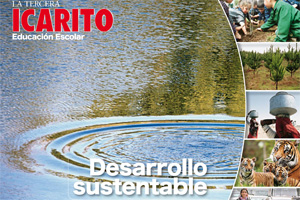Summaries
Sustainable development
– Sustainable development corresponds to the efficient, equitable and environmentally responsible use of all scarce resources, whether they are natural, human or economic, satisfying the needs of current generations without compromising the possibilities of future generations.
– In 1992 the United Nations Conference on the Environment and Development (also known as the Earth Summit or the Rio Summit), was held and the problem of sustainable development was addressed.
– The Johannesburg Summit (2002) had as its main objective the application of a plan for nations agreeing on the sustainable development of the economy and of society, and the conservation of nature.
Ecosystem management
– Water is considered a very important vital finite resource for the development of countries.
– Reforestation is a sustainable practice that allows repopulation (with endemic or introduced plant species) of zones that were covered with forest in the past.
– Organic agriculture involves using natural fertilizer, special irrigation systems and natural plague control, among other activities.
– The concept of environmental education has been used since the seventies and corresponds to the process of recognizing, valuing and appreciating interactions between man, his culture and his biophysical environment.





